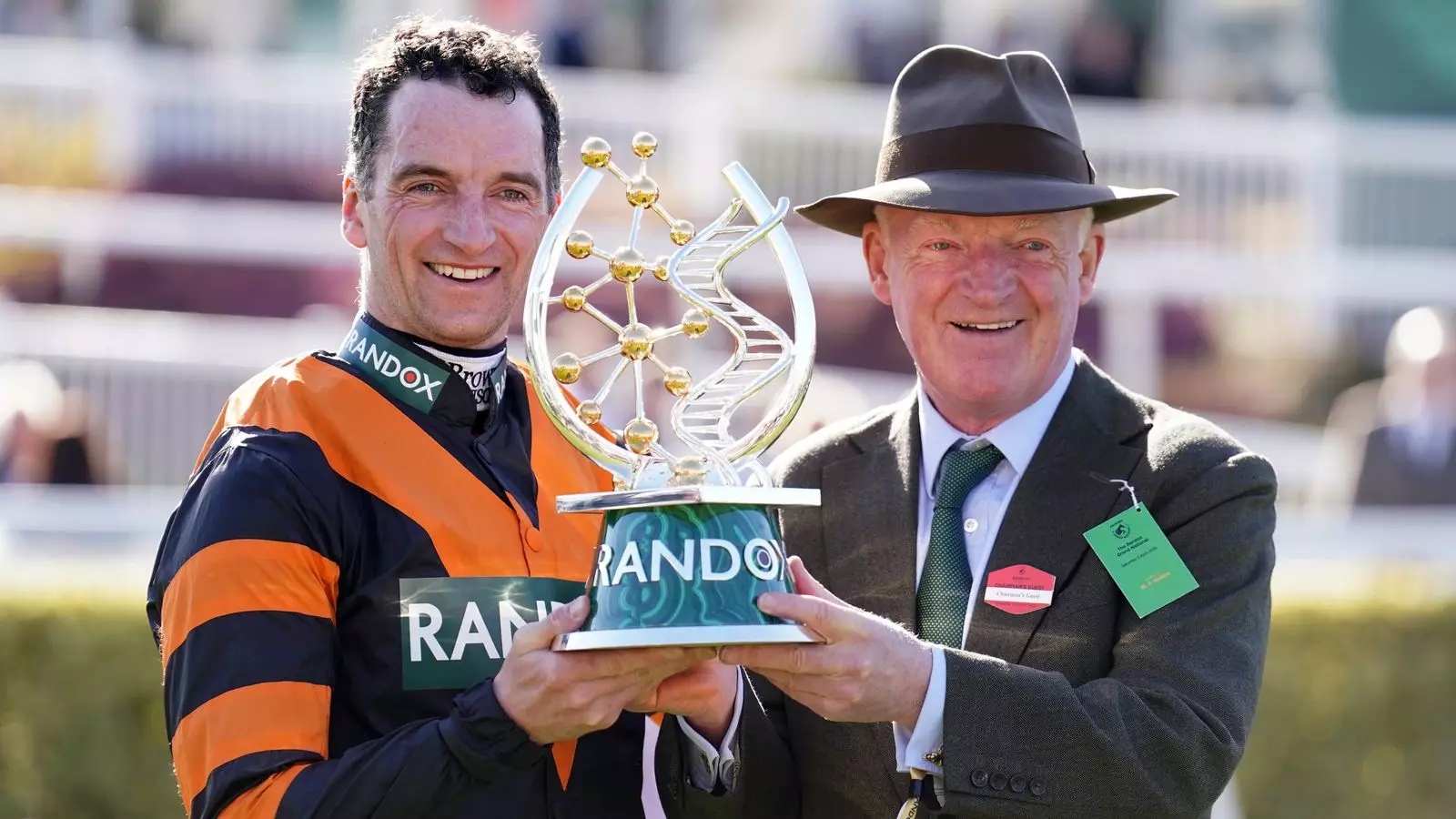In the world of horse racing, certain names resonate with an almost mythic quality, and at the forefront of this phenomenon is the Mullins family. Patrick Mullins, an amateur rider fueled by passion and legacy, secured a monumental victory in the Grand National aboard Nick Rockett, a horse trained by his father, the renowned Willie Mullins. While the 33/1 odds offered a glimmer of hope, no one could have anticipated the resounding triumph that unfolded on that fateful day at Aintree.
This iconic race, pulsating with the heartbeats of 70,000 spectators, showcased a sweeping finish that would send ripples across the racing community. Not only did Nick Rockett claim victory, but it also marked a remarkable 1-2-3 finish for the Mullins stable. With I Am Maximus and Grangeclare West rounding out the placements, the Mullins family performance echoed through history, hinting at the possibility of a dynasty that transcends mere statistics. However, amid this celebration of skill and success lies an uncomfortable truth: the inherent dangers of the Grand National loom larger than ever.
Emotional Tides Amidst Achievement
As Patrick Mullins crossed the finish line with exuberance, his victory was not solely a personal achievement; it was intertwined with profound emotional significance. For Stewart Andrew, the owner of Nick Rockett, this race was an ode to love and loss. Just five days before the race, Andrew’s wife, Sadie, had passed away, leaving behind a legacy intertwined with the horse’s journey. “This is a class horse; he’s got the heart of a lion,” Andrew expressed, capturing the complexity of triumph entwined with sorrow. It ignites a haunting question: is victory ever truly sweet if tasted amid such heartache?
The emotional gravity of the day was palpable, with Mullins’ own tears of joy flowing in recognition not just of his win but of a shared familial legacy. Willie Mullins’ heartfelt acknowledgment of his son’s ride in the National places this grand sportsmanship within a context that challenges us to consider what victory means both personally and relationally.
Changing the Landscape of Safety in Racing
Despite the celebratory tones echoing through the paddocks after the race, it is vital to confront the daunting specter of risk that underpins the Grand National. This race has long been scrutinized for its dangerous nature, marked by the sheer scale of its obstacles and the casualties often involved. Recent changes aimed at ensuring safety are commendable, including a standing start and various structural modifications to the course itself.
Nevertheless, the recent history of racing often reveals a conflict between tradition and safety. One has to wonder whether these measures are sufficient to safeguard the future of the sport, or whether they are merely a band-aid over a much deeper issue. Each race is a compelling reminder that we celebrate the beauty of athleticism while standing on the precipice of peril. The earnest discussion about the balance between thrill and safety is increasingly essential, yet often avoided in the racing community.
A Legacy or Just Luck?
In the grand narrative of the Grand National, the names Mullins and Rockett shine bright. Patrick Mullins’ story, steeped in a childhood dream, points to the romanticism prevalent in sports where success often feels predetermined by lineage. But it raises an eyebrow to a critical question: does lineage overshadow talent and hard work? Is it fair that the Mullins name drapes the winner’s circle with such regularity?
These reflections challenge the very fabric of what constitutes merit in modern sports, especially when opportunity is significantly skewed by familial ties. While Patrick Mullins can, without a doubt, ride and navigate the complexities of a high-stakes race, one wonders how many other passionate riders, with equal ability yet devoid of Mullins’ last name, remain in the shadows, overlooked amid the fanfare.
The Grand National encapsulates the exhilarating highs and the somber lows of competitive spirit. Triumph intertwined with tragedy, legacy juxtaposed with risk—each element offers a frame for an exceptional story, while simultaneously prompting critical reflection on the nature of success in this celebrated yet perilous sport.

